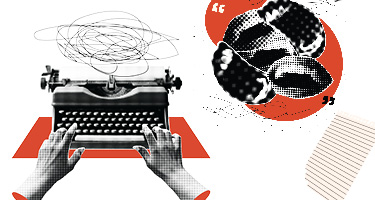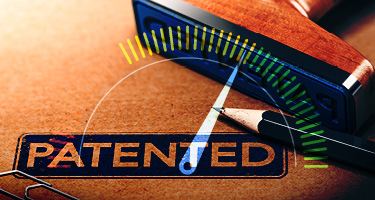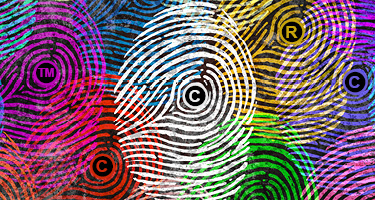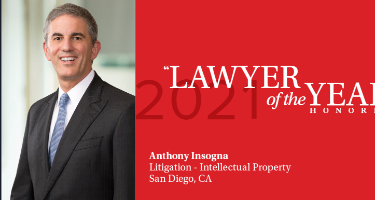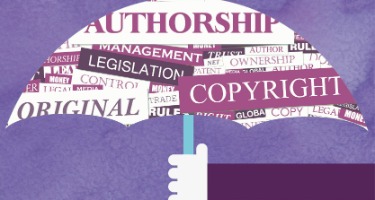Substantively, copyright protection is the same in the digital world and on the internet as in traditional form. The only practical difference is the likelihood that the copyright will be infringed. Works available in cyber space are far more likely to be the subject of unauthorized copying. This may be the result of people’s misconception about copyright protection over online works, it may be because the online work is more accessible and easier to copy than its paper counterpart, or it may be a combination of these factors.
Many people mistakenly believe that when a work is available on the internet, it is in the public domain. Public domain means that the work is not protected by copyright laws. Posting a work on the internet does not remove or even change the work’s copyright protection.
Photographs are commonly copied without permission online. Search engine options such as a Google image search have fostered rampant copyright infringement of photographs. Countless people believe that Google is somehow the source of the photographs because they found them through Google. While Google has an option to limit searches so that the results only include photographs that can be used without a royalty, most people do not know that option is available. Instead, they incorrectly assume that all photographs in their search results are free to use. The problem is compounded by the sharing culture that has emerged from social media.
Because copying of online works is rampant, it is a good idea to take both legal and technological precautions to protect your content when it is available online. One precautionary measure that you may want to take is to use a plain language warning in addition to the copyright notice. Because some unauthorized copying really is the result of ignorance, you can reduce the likelihood of infringement by educating the user. Use a traditional copyright notice, but add a sentence similar to the following: “This content is protected by the copyright laws of the United States as well as international treaties. Do not copy this without written permission from [fill in the copyright owner’s name].”
If your work will appear online, it is particularly important that you register the copyright with the United States Copyright Office. If your work is very valuable, or if you have a particular concern about copyright infringement, you might inquire with your technology consultant about the availability and cost of software that prevents others from copying it. Another helpful technology is the ability to detect copying by searching the internet for content that is substantially similar to your content. One popular tool is found at http://www.copyscape.com/.
To help address pervasive copying of online works, the Digital Millennium Copyright Act (“DMCA”) went into effect in 1988. The DMCA provides a process for removing unauthorized works from the internet. Specifically, the DMCA provides a safe harbor to internet service providers and website owners who did not directly infringe a third-party’s copyrights, did not have actual knowledge that the material was infringing, did not receive financial benefit directly attributable to the infringing activity and respond expeditiously to a proper notice to remove the material.
To understand the DMCA, it is helpful to understand how the internet works. In order for a website to appear on the internet, several service providers are involved: (1) the website operator or owner (whoever actually controls the content on the website); (2) the internet service provider, which provides the website owner with access to the internet; and (3) the domain name registrar, which provides the uniform resource locator (“URL”) or domain name to the website owner.
The website owner may or may not be directly responsible for posting the infringing content. Often website owners actively post content on their website. However, many websites provide forums for third party postings, such as blogs and chat rooms. A website owner is liable for copyright infringement if the owner or its agents directly post content on the website without permission that is copyright protected.
On the other hand, a website owner is not automatically liable for copyright infringement committed by a third party on its website. Under the DMCA, the website owner only becomes liable for third-party content if it is put on notice of the infringement and fails to timely remove the content. Thus, the DMCA serves the dual purpose of protecting the website owner from lawsuits for third-party copyright infringement and protects the copyright owner by providing the website owner an incentive to promptly remove infringing materials.
In order to determine the identity of the website owner, you must perform a “whois” search. There are several resources for whois searches. A popular whois service can be found at http://www.whois.net Another good resource is http://www.networksolutions.com (follow the “whois” link on the website). “Whois” will tell you who owns the website. There are, however, two problems that often arise. One is that the whois information may be fake. Fortunately, there is a service for reporting false whois information. It can be found at http://wdprs.internic.net. Following a report, the domain registrar must cause the website owner to correct the whois information. If the website owner fails to correct the deficiency, the domain registrar must take the domain name from the website owner.
A more difficult challenge is when the website owner has subscribed to a domain privacy service that makes its identity anonymous. In that case, you must direct your claims to the domain registrar that is providing the domain privacy service and follow their procedure for making any claims against the website owner.
If the infringing content that you want removed resides on a website operated by someone other than the infringer, you should utilize the DMCA process described below against the website owner to force the website owner to remove the materials. If the website owner is the infringer, it may be unwilling to remove the infringing materials. In that situation, you will send your notice to the internet service provider (“ISP,” also known as the host). The ISP has the ability to control the website’s access to the internet. The ISP is often confused with the domain name registrar. The domain name registrar has control of the web address, but not the content. The domain name registrar is not in a position to remove the website from the internet, even if the website is infringing your copyright. The ISP does have that control and will usually be responsive to a DMCA notice.
Once you have figured out whether you are directing your demands to the website owner or the ISP, you will next want to find out the specific person or email address to direct your notice. The United States Copyright Office website has a list of agents to whom DMCA notices should be sent. Every ISP or website owner that seeks protection under the DMCA must provide an agent name to the Copyright Office. If the website owner to whom you want to send a notice does not have an agent, you should send the notice to the “contact us” email address available on the website. It is very unusual that an ISP would not designate a DMCA agent; but if that is the case, look for contact information on the ISP’s website. Although anyone can send a DMCA notice, the notice must follow a strict format, and it is probably a good idea to utilize an attorney well-versed in copyright law to prepare and send the notice.
Typically, a properly prepared DMCA notice will result in prompt removal of the infringing material. Sometimes, dishonest website owners move the content to a new ISP rather than permit the ISP to block their access to the internet. In such cases, we send a DMCA notice to the new ISP and repeat the process until the website owner gets tired of moving from host to host.
Although protecting online content can require diligence on your part, the laws and technological tools do make the task manageable. It helps to become familiar with the preventative measures available and, in the event of an infringement, to work closely with an attorney familiar with both intellectual property laws and internet laws.
Social media presents another online dilemma for the protection of copyright-protected works. While social media is an important tool for promoting your services, it can easily lead to infringement and misuse of your content.
If someone has posted your content on social media in a manner that you haven’t approved, the social media platform will very likely have an internal reporting and take-down process that permits you to report the content and have it removed. If the account holder who has used the content without permission is a commercial establishment, you might not be content with just a take-down and you might seek damages.
The online world can be a challenging place for a copyright owner but the DMCA and the internal take-down policies of social media websites provide free and cost-effective options for protection of your content.
This article is adapted from an excerpt from the book, Protect Your Photographs: A Legal Guide for Photographers, by Maria Crimi Speth, Esq., available on Amazon. Ms. Speth is an intellectual property attorney and chair of the IP group at the Phoenix law firm of Jaburg Wilk. She has expertise in copyright law, trademark law, and Internet law. She focuses on litigation involving intellectual property rights, privacy and First Amendment rights. Ms. Speth is also the author of the book, Protect Your Writings: A Legal Guide for Authors.

